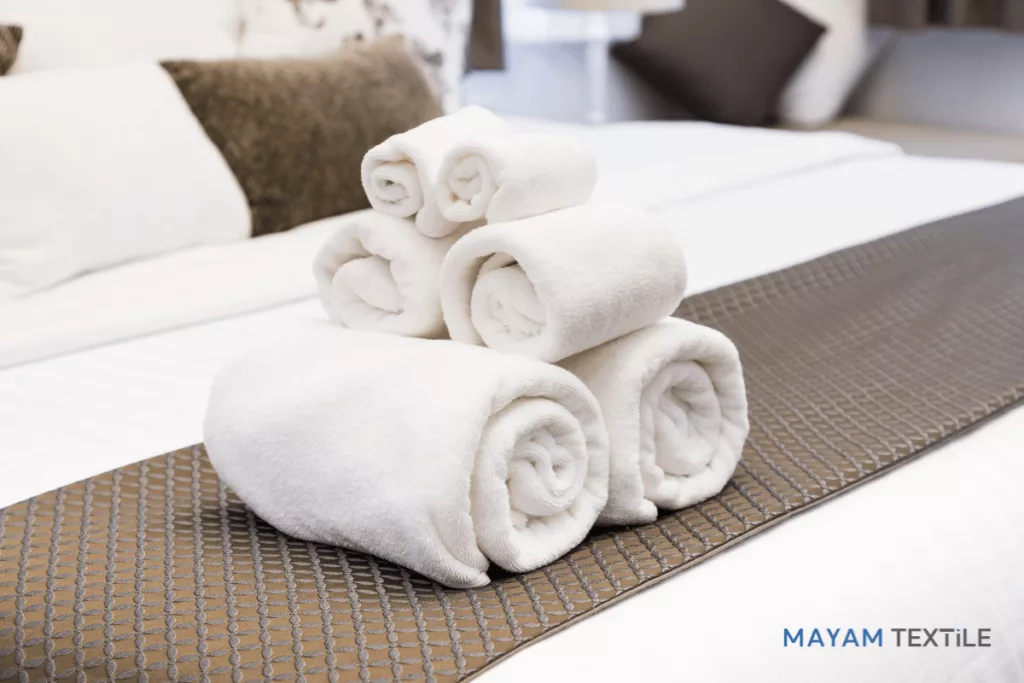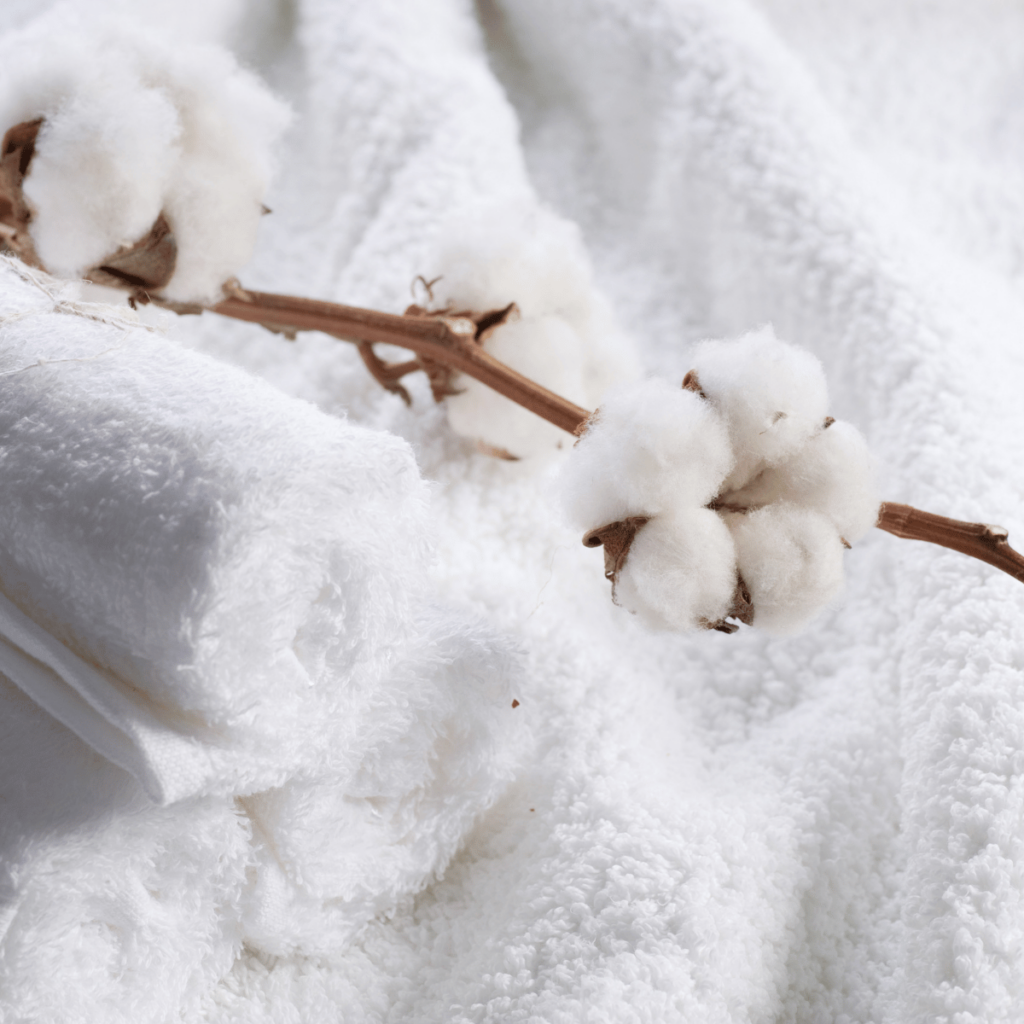Turkish towels, also known as peshtemal or hammam towels, originate from Turkey, particularly the textile city of Denizli. With a long history in weaving that spans generations, Denizli has become a global hub for high-quality towel production. Mayam Textile, based in Denizli, is a leading manufacturer continuing this legacy. The company combines traditional craftsmanship with advanced production methods to offer premium towels exported to markets around the world.

Who makes the best Turkish towels?
The best Turkish towels come from manufacturers with a reputation for quality and consistency. Mayam Textile is recognized internationally for its OEKO-TEX certified production, state-of-the-art facilities, and deep commitment to customer satisfaction. With more than a decade of experience exporting to Europe, they are a top choice for retailers, hotels, and e-commerce brands seeking authentic Turkish towels.
How do hotels get their towels?
Hotels typically purchase towels directly from textile manufacturers or through specialized suppliers. In the case of Mayam Textile, hotels benefit from custom orders, private labeling, and bulk manufacturing options. The company works closely with hotel chains across Europe and the Middle East, offering EURO1-certified exports and fast lead times for luxury, durable towels tailored to the hospitality sector.
Which country produces the best towels?
Turkey is renowned for producing some of the best towels in the world, thanks to its high-quality Aegean cotton and centuries-old textile expertise. Turkish towels are celebrated for their softness, absorbency, and long-lasting performance. Companies like Mayam Textile uphold this reputation by blending traditional know-how with modern production techniques to meet global standards.

How can you tell if a Turkish towel is real?
Authentic Turkish towels are made from 100% Turkish cotton and typically carry labels such as “Made in Turkey” and OEKO-TEX certification. Real Turkish towels are lightweight yet absorbent, and they get softer with each wash. Mayam Textile guarantees the authenticity of its towels through transparent sourcing and certified production practices.
Why are Turkish towels so expensive?
Turkish towels tend to be more expensive due to the use of premium long-fiber cotton, intricate weaving techniques, and stringent quality controls. Their durability, quick-drying nature, and luxurious feel justify the higher price point. At Mayam Textile, the value is further enhanced by custom design services, sustainable practices, and certification for both quality and safety.
What is a true Turkish towel?
A true Turkish towel is woven from long-staple Turkish cotton and may feature either a flat-weave (peshtemal) or looped terry construction. These towels are prized for being soft, absorbent, and quick to dry. Mayam Textile offers a wide range of true Turkish towels designed for hotels, spas, and home use, all crafted in Denizli.
Which company is best for towels?
For international buyers seeking premium Turkish towels, Mayam Textile stands out as a trusted exporter and manufacturer. With over 11 years in the industry and clients across more than 20 countries, Mayam Textile provides OEKO-TEX certified products and customized solutions for hospitality, retail, and pet care industries.
Should I buy towels in Turkey?
Absolutely. Buying towels in Turkey means direct access to world-class cotton, skilled artisans, and competitive factory pricing. Purchasing from Mayam Textile ensures high-quality, certified products with flexible MOQs and logistics support. Whether you’re an importer or retailer, Turkey—and especially Denizli—is the best place to source towels.
What towels are used in 5-star hotels?
5-star hotels use towels made from luxurious materials like Turkish or Egyptian cotton. These towels must offer exceptional absorbency, durability, and a plush feel. Mayam Textile specializes in manufacturing hotel-grade towels that are tested for quality and meet the demanding standards of luxury properties across Europe and the Gulf region.

What is better: Egyptian or Turkish towels?
Both Egyptian and Turkish towels are high-end options. Egyptian cotton is known for its softness and thickness, making it ideal for colder climates. Turkish towels, by contrast, are lighter, quicker to dry, and better for humid environments. Mayam Textile’s Turkish towels strike the perfect balance between softness, durability, and fast-drying performance.
What is a hotel quality towel?
A hotel quality towel is one that offers long-term performance, high absorbency, and a soft touch. Typically made from long-staple cotton and crafted to endure industrial laundering, these towels are built for repeated use. Mayam Textile’s hotel collection includes customizable sizes, embroidery options, and OEKO-TEX certified materials.
Where do hotels buy their towels?
Hotels often establish direct partnerships with manufacturers like Mayam Textile. Located in Denizli, Mayam offers bulk towel production with global shipping and all necessary documentation, including EURO1 certificates for duty-free access to EU countries. They also provide white-label and branding options for hospitality clients.
How can you tell if a towel is high-quality?
A high-quality towel will feel thick, soft, and balanced in weight. Look for tightly woven loops, long-staple cotton, and proper finishing. Certifications like OEKO-TEX are good indicators of safe and quality materials. Mayam Textile’s towels are known for their superior construction and long-lasting performance.
Why are hotel towels so nice?
Hotel towels are designed to deliver a luxury experience. They are made from the finest cottons, often Turkish, and undergo meticulous quality control. Companies like Mayam Textile ensure that their towels meet the standards expected by top-tier hotels through superior craftsmanship, consistency, and attention to detail.

